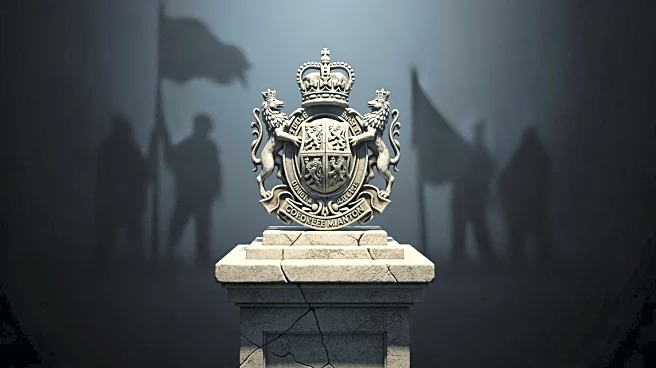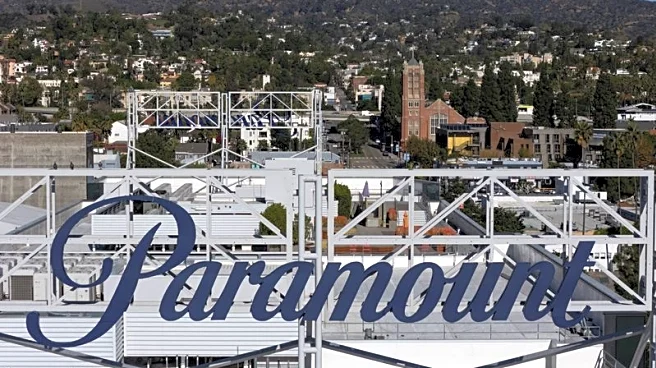What's Happening?
Former Madagascar President Andry Rajoelina has been stripped of his citizenship following a military takeover that ousted him from power. The new government, led by Prime Minister Herintsalama Rajaonarivelo,
invoked laws that remove citizenship from Madagascans who hold dual nationality. Rajoelina, who also holds French citizenship, fled the country amid youth-led protests demanding his resignation. These protests, which were initially sparked by issues such as water and electricity shortages, escalated into broader discontent over poverty and unemployment. The unrest led to a military intervention, resulting in Colonel Michael Randrianirina being sworn in as the new president. Rajoelina's dual citizenship had previously been a point of contention during his 2023 presidential campaign.
Why It's Important?
The stripping of Rajoelina's citizenship marks a significant shift in Madagascar's political landscape, highlighting the ongoing instability in the country. This development could have broader implications for Madagascar's international relations, particularly with France, given Rajoelina's dual citizenship. The military takeover and subsequent political changes may also impact foreign investment and economic stability in Madagascar, a country already grappling with poverty and infrastructure challenges. The situation underscores the fragility of democratic processes in regions with a history of political upheaval, potentially influencing how international bodies engage with Madagascar moving forward.
What's Next?
The new government in Madagascar may face international scrutiny and pressure to restore democratic governance. The international community, including organizations like the United Nations, may call for a return to civilian rule and the protection of human rights. Domestically, the new leadership will need to address the root causes of the protests, such as economic hardship and infrastructure deficiencies, to stabilize the country. The response of the Malagasy people and the international community will be crucial in determining the future political trajectory of Madagascar.
Beyond the Headlines
The situation in Madagascar raises questions about the role of military interventions in political transitions and the legal implications of stripping citizenship based on dual nationality. It also highlights the challenges faced by countries with colonial legacies, where citizenship laws and national identity can become contentious issues. The broader implications for regional stability in Africa, where similar political dynamics exist, could also be significant, potentially influencing how other nations address dual citizenship and political dissent.










